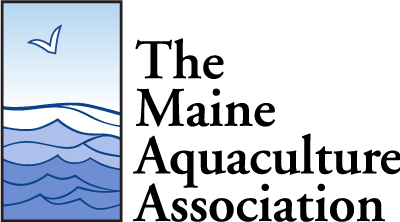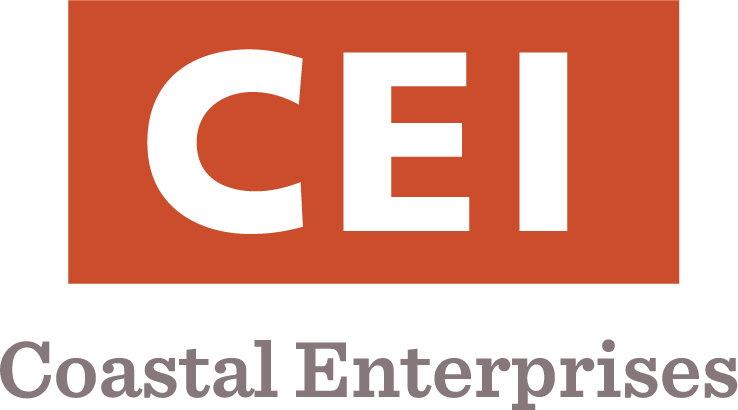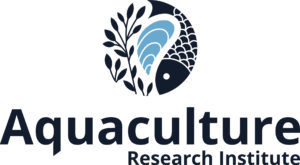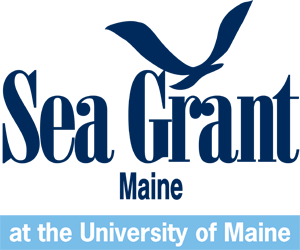Partners
Maine Sea Grant
Maine Aquaculture Association
Maine Aquaculture Innovation Center
Coastal Enterprises, Inc.
University of Maine Aquaculture Research Institute
University of Maine School of Marine Sciences
Maine Sea Grant
Since 1971, Maine Sea Grant, locations coastwide, has been supporting marine science for Maine people as one of 33 NOAA Sea Grant programs throughout the coastal and Great Lakes states. The network is a powerful resource for sharing information and solving problems. In partnership with University of Maine Cooperative Extension, members of the program’s Marine Extension Team address issues of concern to Maine’s coastal communities. A 25-member policy advisory committee identifies stakeholder needs and ensures that the extension team’s work is relevant to the people of Maine. Maine Sea Grant sponsors scientific research that matters to those who depend on Maine’s coastal and marine resources and is committed to developing tomorrow’s marine workforce through formal and informal education programs, fellowships and scholarships. Maine Sea Grant’s contributions to aquaculture research, outreach, and education over nearly four decades include support for applied research and technology transfer initiatives that have advanced and improved culture methods, infrastructure, and collaboration in the shellfish and sea vegetable aquaculture industry. The program has supported research and provided networking and coordination for efforts to address finfish and shellfish disease and related management and regulatory issues and has played a leadership role in the state’s efforts to develop aquaculture education and training opportunities for K-12 audiences, undergraduate and graduate students, and professionals seeking to enter the aquaculture industry. Maine Sea Grant will serve as the home of the Hub.
Maine Aquaculture Association
 Founded in 1976, the Maine Aquaculture Association (MAA), located in Hallowell, is the oldest state aquaculture association in the country. Its members (>150) grow finfish, shellfish and sea vegetables in both fresh and saltwater using a variety of innovative farming methods. The MAA and its member growers are widely recognized as pioneers in the development of innovative and sustainable farming methods designed to enhance their stewardship of Maine’s pristine aquatic environments. Through a 14-point set of environmental guiding principles, cooperative area management agreements, continuous member improvement training and third party audited best management practices MAA and its members are leading the way in the development of new and environmentally sustainable ways to provide America with healthy, fresh seafood. MAA provides direct linkage to private sector, technical expertise in farm management, production economics, biosecurity and best management practices.
Founded in 1976, the Maine Aquaculture Association (MAA), located in Hallowell, is the oldest state aquaculture association in the country. Its members (>150) grow finfish, shellfish and sea vegetables in both fresh and saltwater using a variety of innovative farming methods. The MAA and its member growers are widely recognized as pioneers in the development of innovative and sustainable farming methods designed to enhance their stewardship of Maine’s pristine aquatic environments. Through a 14-point set of environmental guiding principles, cooperative area management agreements, continuous member improvement training and third party audited best management practices MAA and its members are leading the way in the development of new and environmentally sustainable ways to provide America with healthy, fresh seafood. MAA provides direct linkage to private sector, technical expertise in farm management, production economics, biosecurity and best management practices.
Maine Aquaculture Innovation Center
 The Maine Aquaculture Innovation Center (MAIC), in Walpole, was established in 1988 by the Maine Legislature to assist in developing economically and environmentally sustainable aquaculture opportunities in Maine. MAIC sponsors and facilitates innovative research and development projects involving food, pharmaceuticals, and other products from sustainable aquatic systems; invests in the enhancement of aquaculture capacity in Maine; serves as a source of educational information to enhance public visibility and acceptance of aquaculture; and encourages strategic alliances tasked with promoting research, technology transfer, and the commercialization of aquaculture research. MAIC also convenes the Northeast Aquaculture Conference & Exposition.
The Maine Aquaculture Innovation Center (MAIC), in Walpole, was established in 1988 by the Maine Legislature to assist in developing economically and environmentally sustainable aquaculture opportunities in Maine. MAIC sponsors and facilitates innovative research and development projects involving food, pharmaceuticals, and other products from sustainable aquatic systems; invests in the enhancement of aquaculture capacity in Maine; serves as a source of educational information to enhance public visibility and acceptance of aquaculture; and encourages strategic alliances tasked with promoting research, technology transfer, and the commercialization of aquaculture research. MAIC also convenes the Northeast Aquaculture Conference & Exposition.
Coastal Enterprises, Inc.
 Coastal Enterprises, Inc. (CEI), headquartered in Brunswick, with offices statewide, is a national leader in rural business development, specializing in financing, business advice and industry expertise. We work with entrepreneurs seeking to launch and grow businesses, improve profitability and long-term viability, and create and sustain quality jobs across all sectors that drive Maine’s economy. CEI offers business loans for working capital; purchasing land, buildings, equipment and machinery; property renovations and improvements; and new construction. Our business advisors, including fisheries and aquaculture experts, provide no cost, confidential business plan development, sales and marketing expertise, market research and access to webinars and trainings. With over $268 million in financing for 2,303 businesses since 1977, CEI has provided 250 loans totaling over $18 million for entrepreneurs in fisheries and aquaculture, helping to create or retain 2,200 jobs in our communities. We are helping to build a marine industry that can adapt to changes at sea and on land, with healthy and sustainable wild and farmed fisheries, and good jobs contributing to strong communities. Learn more at www.ceimaine.org.
Coastal Enterprises, Inc. (CEI), headquartered in Brunswick, with offices statewide, is a national leader in rural business development, specializing in financing, business advice and industry expertise. We work with entrepreneurs seeking to launch and grow businesses, improve profitability and long-term viability, and create and sustain quality jobs across all sectors that drive Maine’s economy. CEI offers business loans for working capital; purchasing land, buildings, equipment and machinery; property renovations and improvements; and new construction. Our business advisors, including fisheries and aquaculture experts, provide no cost, confidential business plan development, sales and marketing expertise, market research and access to webinars and trainings. With over $268 million in financing for 2,303 businesses since 1977, CEI has provided 250 loans totaling over $18 million for entrepreneurs in fisheries and aquaculture, helping to create or retain 2,200 jobs in our communities. We are helping to build a marine industry that can adapt to changes at sea and on land, with healthy and sustainable wild and farmed fisheries, and good jobs contributing to strong communities. Learn more at www.ceimaine.org.
 University of Maine Aquaculture Research Institute
University of Maine Aquaculture Research Institute
The University of Maine’s Aquaculture Research Institute (ARI) was formally created in 2009 to lead R&D for Maine aquaculture, one of the seven targeted technology areas outlined in the 2010 Maine Science and Technology Action Plan. ARI provides leadership for Maine’s aquaculture research and development and plays a key role in coordinating aquaculture interests, facilities and assets to form a cohesive, interdisciplinary team that can address critical research questions. Since 2014 the five-year Sustainable Ecological Aquaculture Network (SEANET) project, funded by a $20 million National Science Foundation (NSF) Experimental Program to Stimulate Competitive Research (EPSCoR) grant, has built capacity for sustainable aquaculture research and education at UMaine and partner institutions across the state. After the grant sunsets in 2019, ARI will continue SEANET’s research, outreach and educational support for undergraduate and graduate students.
The University of Maine
The University of Maine Social Science research team, based in Orono, was formed with the inception of AQSW in 2013 with support from the National Sea Grant program and built upon more than a decade of research and engagement in Maine’s fishing and coastal communities. The AQSW social science research represents a unique longitudinal study of the adoption of marine aquaculture as a diversification strategy for Maine’s working waterfronts, and this research continued with funding from the SEANET program. Dr. Johnson served as Co-PI of SEANET and led human dimensions research on marine aquaculture. The team brings extensive expertise and experience in social science research on marine aquaculture and coastal community resilience, as well as experience conducting and evaluating transdisciplinary research programs (e.g., Jansujwicz and Johnson 2015, Johnson and McCay 2012, Johnson 2010).
The University of Maine is also a partner in the Hub via its connections as the host institution for Maine Sea Grant, ARI, the Darling Marine Center (location of Extension Specialist Morse and MAIC), and University of Maine Cooperative Extension.


